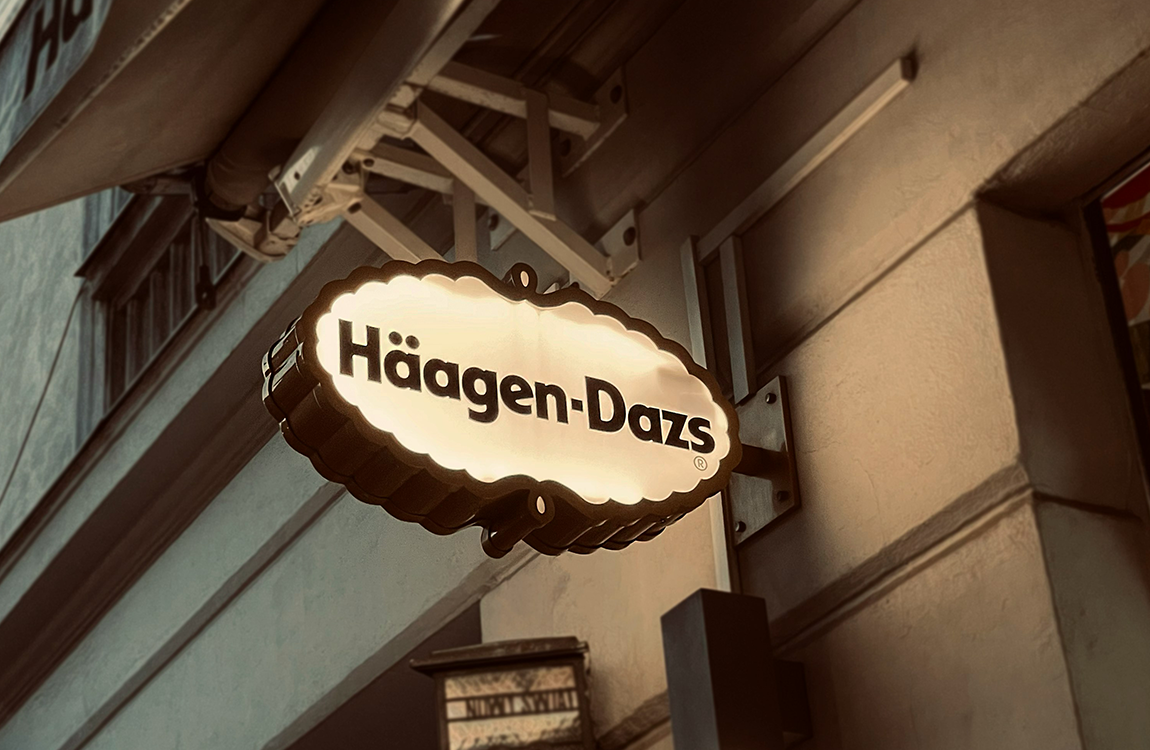How Häagen-Dazs Created a Unique and Successful Name
The naming of Häagen-Dazs is an intriguing subject that has sparked a great deal of curiosity and discussion. While the name itself may appear to have a Scandinavian origin, it is important to understand that Häagen-Dazs is actually an invented word with no specific meaning in any language. This unique naming strategy adopted by the founders of Häagen-Dazs, Reuben and Rose Mattus, was a deliberate and highly successful marketing tactic that contributed to the brand's distinctiveness and global recognition. In order to explore the perspectives and nuances surrounding the naming of Häagen-Dazs, let's delve into its historical context, linguistic elements, and marketing implications.
1. Historical Context:
Häagen-Dazs was introduced in the United States in the late 1950s by Reuben and Rose Mattus, who were passionate about creating a super-premium ice cream brand. The Mattuses wanted a name that would convey a sense of luxury, craftsmanship, and European heritage. At that time, Scandinavian-sounding names were associated with high quality and purity in the minds of American consumers. The couple combined this perception with their own Danish-sounding surname, "Mattus," to create the unique and memorable name "Häagen-Dazs."
2. Linguistic Elements:
The name Häagen-Dazs incorporates several linguistic elements that contribute to its distinctiveness. The use of umlauts (the two dots above the "a") is a notable feature, as umlauts are commonly found in Germanic languages such as German and Scandinavian languages like Danish and Swedish. By utilizing this diacritic, the name Häagen-Dazs appears exotic and foreign, evoking an impression of European heritage and craftsmanship.
Furthermore, the combination of the letters "ä" and "zs" in Häagen-Dazs is unconventional and not phonetically consistent with any specific language. This intentional departure from linguistic norms adds to the mystique and allure of the brand. It creates an impression of exclusivity and uniqueness, setting Häagen-Dazs apart from other ice cream brands.
3. Marketing Implications:
The naming strategy of Häagen-Dazs has proven to be a masterstroke in terms of marketing and brand recognition. The invented name is distinctive, memorable, and easily recognizable, making it stand out in a crowded marketplace. It has become synonymous with high-quality ice cream and has successfully positioned Häagen-Dazs as a premium brand.
Moreover, the Scandinavian-sounding name aligns with the perception of Northern European countries as producers of superior quality products. This association with a perceived sense of craftsmanship, authenticity, and purity has played a significant role in Häagen-Dazs' branding and marketing efforts.
It is worth noting that the naming approach of Häagen-Dazs has faced some criticism as well. Some argue that the name is misleading and culturally appropriative, as it does not have any genuine Scandinavian roots. Critics contend that the aim was to create an illusion of European heritage to enhance the brand's appeal, without any real connection to the culture it purportedly represents.
In response to such criticism, Häagen-Dazs has acknowledged the invented nature of its name, emphasizing that it was never intended to have a specific meaning. The company has focused on the quality of its products and the craftsmanship behind them as the true essence of the brand.
In conclusion, the naming of Häagen-Dazs is a fascinating case study in marketing and brand development. By combining linguistic elements and historical context, the founders successfully created a distinct and memorable name that evokes notions of luxury, craftsmanship, and European heritage. While the name has faced criticism for its lack of authenticity, it remains an iconic brand in the ice cream industry, demonstrating the power of effective naming and branding strategies.
Häagen-Dazs如何打造獨特而成功的名字
Häagen-Dazs的命名是一個引人入勝的話題,引起了許多好奇和討論。雖然這個名字本身可能看起來有斯堪的納維亞起源,但重要的是要了解Häagen-Dazs實際上是一個虛構詞,沒有任何特定語言的具體含義。 Häagen-Dazs的創始人魯本和羅斯·馬圖斯採用的這種獨特命名策略是一種刻意且非常成功的營銷策略,為該品牌的獨特性和全球知名度做出了貢獻。為了探索Häagen-Dazs命名的不同觀點和細微差別,讓我們深入了解其歷史背景、語言元素和營銷影響。
1. 歷史背景:
Häagen-Dazs於20世紀50年代末在美國由魯本和羅斯·馬圖斯引入,他們熱衷於創建一個超級高級的冰淇淋品牌。馬圖斯夫婦希望能夠找到一個能傳達奢華、工藝和歐洲遺產感的名字。當時,斯堪的納維亞聽起來的名字在美國消費者心中與高品質和純潔相關聯。夫妻倆將這種認知與他們自己的聽起來像丹麥的姓氏“馬圖斯”結合在一起,創造了獨特且令人難忘的名字“Häagen-Dazs”。
2. 語言元素:
Häagen-Dazs這個名字結合了幾個語言元素,這些元素有助於其獨特性。其中一個引人注目的特點是使用了元音變音符號(umlauts),即位於“a”上方的兩個點。元音變音符號在德語等日爾曼語言和丹麥語、瑞典語等斯堪的納維亞語言中很常見。通過使用這種變音符號,Häagen-Dazs的名字顯得異國風情,讓人聯想到歐洲的遺產和工藝。
此外,Häagen-Dazs的名字中的“ä”和“zs”字母的組合是非傳統的,並且在任何具體語言中並不符合語音規則。這種刻意偏離語言規範的做法增添了品牌的神秘感和吸引力。它創造了一種獨特性和獨一無二的印象,使Häagen-Dazs與其他冰淇淋品牌區別開來。
3. 營銷影響:
Häagen-Dazs的命名策略在營銷和品牌認知方面取得了巨大成功。這個虛構的名字獨特、易於記憶,使其在競爭激烈的市場中脫穎而出。它已成為高品質冰淇淋的代名詞,成功地將Häagen-Dazs定位為一個高級品牌。
此外,斯堪的納維亞聽起來的名字與北歐國家作為優質產品生產者的認知相吻合。這種與被認為具有工藝、真實和純潔感的文化相關聯的形象在Häagen-Dazs的品牌推廣和營銷工作中起到了重要作用。
值得注意的是,Häagen-Dazs的命名方法也面臨了一些批評。一些人認為這個名字具有誤導性和文化侵占性,因為它沒有真正的斯堪的納維亞根源。批評者認為,其目的是創造一種歐洲遺產的幻覺,以增強品牌的吸引力,而與所聲稱代表的文化沒有真正的聯繫。
對於這樣的批評,Häagen-Dazs已承認其名字的虛構性,強調它從未打算具有具體的含義。該公司專注於其產品的質量和背後的工藝作為品牌的真正本質。
總之,Häagen-Dazs的命名是營銷和品牌發展方面引人入勝的案例研究。通過結合語言元素和歷史背景,創始人成功地創造了一個獨特且令人難忘的名字,讓人聯想到奢華、工藝和歐洲遺產。儘管這個名字因缺乏真實性而受到批評,但它仍然是冰淇淋行業中的標誌性品牌,展示了有效命名和品牌策略的力量。
